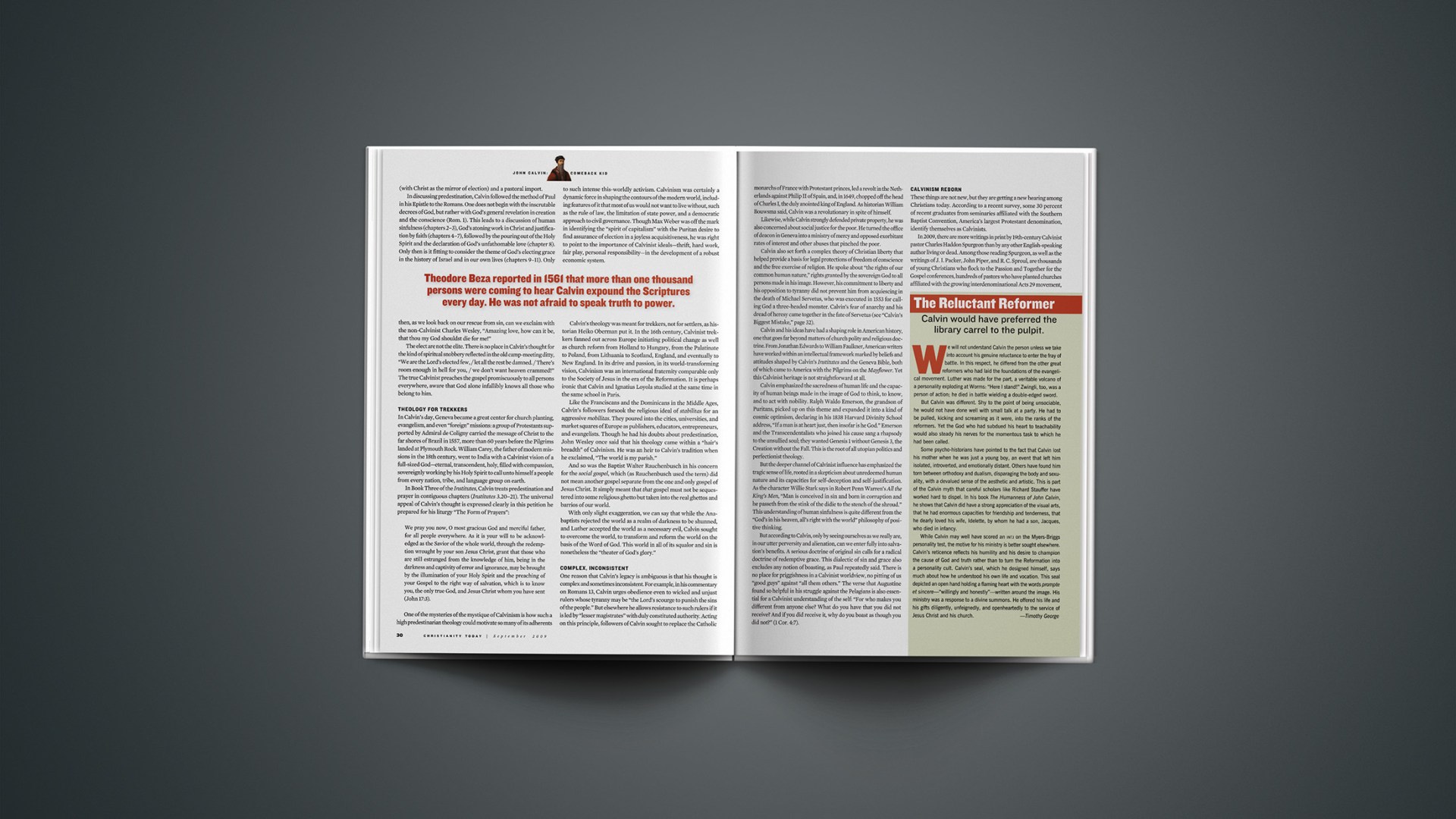We will not understand Calvin the person unless we take into account his genuine reluctance to enter the fray of battle. In this respect, he differed from the other great reformers who had laid the foundations of the evangelical movement. Luther was made for the part, a veritable volcano of a personality exploding at Worms: “Here I stand!” Zwingli, too, was a person of action; he died in battle wielding a double-edged sword.
But Calvin was different. Shy to the point of being unsociable, he would not have done well with small talk at a party. He had to be pulled, kicking and screaming as it were, into the ranks of the reformers. Yet the God who had subdued his heart to teachability would also steady his nerves for the momentous task to which he had been called.
Some psycho-historians have pointed to the fact that Calvin lost his mother when he was just a young boy, an event that left him isolated, introverted, and emotionally distant. Others have found him torn between orthodoxy and dualism, disparaging the body and sexuality, with a devalued sense of the aesthetic and artistic. This is part of the Calvin myth that careful scholars like Richard Stauffer have worked hard to dispel. In his book The Humanness of John Calvin, he shows that Calvin did have a strong appreciation of the visual arts, that he had enormous capacities for friendship and tenderness, that he dearly loved his wife, Idelette, by whom he had a son, Jacques, who died in infancy.
While Calvin may well have scored an INTJ on the Myers-Briggs personality test, the motive for his ministry is better sought elsewhere. Calvin’s reticence reflects his humility and his desire to champion the cause of God and truth rather than to turn the Reformation into a personality cult. Calvin’s seal, which he designed himself, says much about how he understood his own life and vocation. This seal depicted an open hand holding a flaming heart with the words prompte et sincer—”willingly and honestly”—written around the image. His ministry was a response to a divine summons. He offered his life and his gifts diligently, unfeignedly, and openheartedly to the service of Jesus Christ and his church.
Copyright © 2009 Christianity Today. Click for reprint information.
Related Elsewhere:
This is a sidebar to today’s main article, “John Calvin: Comeback Kid.”
See also today’s other sidebar, “Calvin’s Biggest Mistake: Why he assented to the execution of Michael Servetus.”










